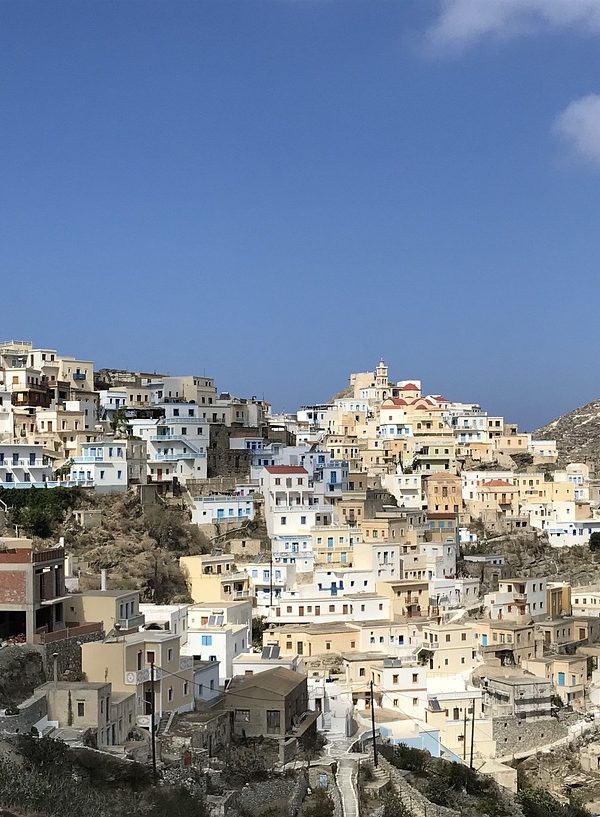Moving to a new country is a big decision and it’s important to carefully consider all the factors that could impact your quality of life. Here are a few things to consider when deciding whether to move to Turkey:
- Culture: Turkey has a rich and diverse culture with a mix of Eastern and Western influences. If you’re considering moving to Turkey, it’s important to learn about the country’s customs, traditions, and cultural expectations.
- Language: While many people in Turkey speak English, especially in major cities, it’s still important to be able to communicate in Turkish if you plan on living there.
- Cost of living: The cost of living in Turkey can vary depending on where you live and your lifestyle. In general, the cost of living in Turkey is lower than in many Western countries, but it’s still important to research the cost of housing, food, and other necessities before making a decision.
- Job opportunities: Turkey has a growing economy and there are job opportunities in a variety of sectors. However, it’s important to research the job market and see if there are opportunities in your field before making a decision to move.
- Climate: Turkey has a diverse climate, with hot, dry summers and mild, wet winters in the western part of the country. The eastern part of the country has a more continental climate, with cold winters and hot summers. The coastal regions have a Mediterranean climate, with mild winters and hot, dry summers.

Which area of Turkey has the best climate to live in?
The best climate for you will depend on your personal preferences. If you enjoy hot, dry weather, you might consider living in one of the coastal regions of Turkey, which has a Mediterranean climate. If you prefer mild, wet winters, the western part of the country might be a good fit. If you enjoy cold winters and hot summers, the eastern part of the country might be a good option.
It’s also important to consider other factors, such as the cost of living, job opp

The Coastal Regions of Turkey
Here are five of the best coastal regions of Turkey:
- The Turquoise Coast: This region stretches from Fethiye to Antalya and is known for its crystal-clear waters, charming towns and villages, and historic sites.
- The Aegean Coast: This region is known for its sandy beaches, olive groves, and ancient ruins, including the city of Ephesus.
- The Black Sea Coast: This region is known for its lush forests, tea plantations, and waterfalls, as well as its seafood and outdoor activities like rafting and hiking.
- The Marmara Coast: This region is home to Istanbul, Turkey’s largest city, as well as other historic sites like the Gallipoli peninsula.
- The Mediterranean Coast: This region is known for its sunny climate, sandy beaches, and ancient cities like Antalya and Alanya.

What is the Cost of living in Turkey after the Pandemic and inflation?
It’s difficult to provide an accurate estimate of the cost of living in Turkey after the pandemic, as the cost of living can vary depending on where you live and your personal lifestyle. Inflation in Turkey has been relatively high in recent years, and the pandemic may have impacted the prices of certain goods and services.
That being said, the cost of living in Turkey is generally lower than in many Western countries. According to Numbeo’s cost of living index, Turkey ranks as the 47th most expensive country in the world, out of a total of 107 countries. This ranking is based on the cost of housing, food, transportation, healthcare, and other necessities.
It’s important to research the cost of living in the specific city or region where you plan on living in Turkey, as prices can vary significantly. Some factors that can impact the cost of living in Turkey include the location (e.g. a major city vs. a smaller town), the type of housing (e.g. apartment vs. house), and your personal lifestyle (e.g. dining out vs. cooking at home).

What is Turkish Food Like?
Turkish food is a blend of Eastern and Western influences, with a wide variety of dishes that include meat, vegetables, grains, and dairy products. Some popular Turkish dishes include:
- Köfte: Meatballs made from ground lamb or beef, mixed with spices and herbs.
- Dolma: Stuffed vegetables, such as bell peppers or eggplants, filled with a mixture of rice, herbs, and spices.
- Börek: A type of pastry made with thin layers of dough, filled with a variety of fillings such as cheese, meat, or vegetables.
- Kebab: Grilled meat, typically lamb, served on a skewer or in a wrap with vegetables and sauces.
- Pide: A type of flatbread topped with various ingredients such as cheese, meat, and vegetables.
Turkish cuisine is known for its use of fresh ingredients and aromatic spices, such as cumin, paprika, and sumac. Turkish meals are often served with a variety of side dishes, such as meze (small plates) and salads. Turkish coffee and tea are also an important part of the culture and are often served at the end of a meal.
Conclusion:
Overall, it’s important to do your research and carefully consider all the factors before making a decision to move to Turkey from anywhere in the world.






Leave a Reply